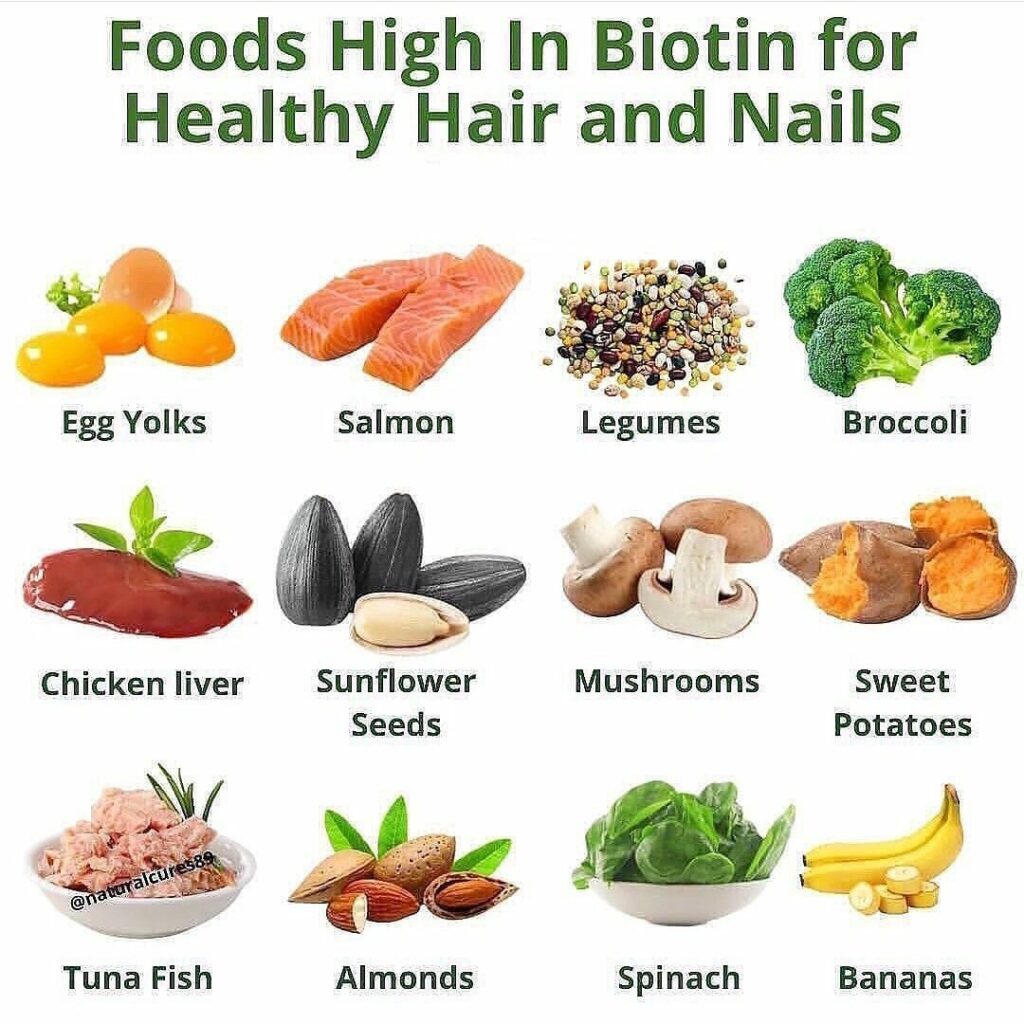Brittle, splitting nails are a common frustration. Many beauty blogs and supplement brands swear that taking biotin (vitamin B7) will turn your nails from fragile to strong. But does it really work — or is it just clever marketing? Let’s dig into the evidence so you can decide with confidence.

What Is Biotin & How Much Do You Already Get?
-
Biotin (a.k.a vitamin B7 or H) is involved in nail, skin, and hair health — part of many “hair & nail booster” supplements.
-
For adults, the daily recommended intake is about 30 µg/day. Most Western diets already provide this through foods like eggs, nuts, leafy greens, salmon, and meats.
-
Some factors can lower your biotin levels: high alcohol consumption, smoking, some digestive issues, even pregnancy or breastfeeding.
So, if your diet is reasonably balanced, you might already be meeting your needs.
How to Tell If You Might Be Biotin Deficient
Here are signs that suggest you might not be getting enough:
-
Nails that are very thin, brittle, or easily split.
-
Other symptoms like hair thinning, skin reactions (rash), or feeling unusually tired or weak.
-
Certain risk factors: if you have digestive problems (absorbing nutrients poorly), or are pregnant/breastfeeding.
If you spot these, boosting biotin may help. If not, it might not move the needle much.

What Does the Research Show?
In clinical studies:
-
Women taking 2.5 mg/day of biotin for several months saw improvements in nail thickness, strength, and reduced splitting — in about 2/3 of participants.
-
But note: about 1/3 saw no change. If your brittle nails are caused by external damage (like acrylic nails, frequent polish, etc.) rather than a nutritional deficiency, biotin is less likely to help.

Are There Risks?
Biotin is generally safe — overdoses are rare, and side effects mild. But a few caveats:
-
Some users report acne breakouts after starting biotin. This might be because high biotin can interfere with vitamin B5 (pantothenic acid) in the body, which has roles in skin health.
-
As with any supplement, quality and purity matter. Not all products have the same absorption or formulation.
How to Use Biotin Wisely
Here are practical tips if you decide to try it:
-
Check your diet first — ensure you’re getting biotin-rich foods already.
-
Pick a reliable supplement — look for clean brands with transparent labeling.
-
Try 2.5 mg/day for 3–4 months and track nail condition (take photos or note splitting, thickness).
-
Be aware of skin changes — if you see acne or irritation, pause and reassess.
-
Don’t rely only on biotin — protect nails from damage (avoid harsh chemicals, frequent acrylics, keep nails moisturized)

Final Verdict
Biotin can help if brittle nails stem from a nutritional deficiency. But for many people, it’s not the magic fix — especially if nails are being damaged by external factors or if diet is already sufficient.
If I were you, I’d try a biotin supplement only after optimizing diet, protecting nails, and ensuring good nail care. Then give it time — you might see noticeable improvements.
✨ Editor’s Pick: Want a scientifically-backed biotin supplement? Or top nail strengthening treatments? I’ll help you find trusted options.
